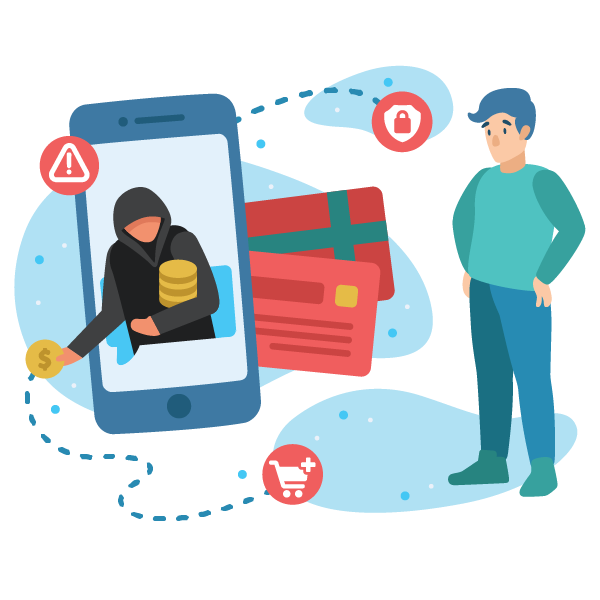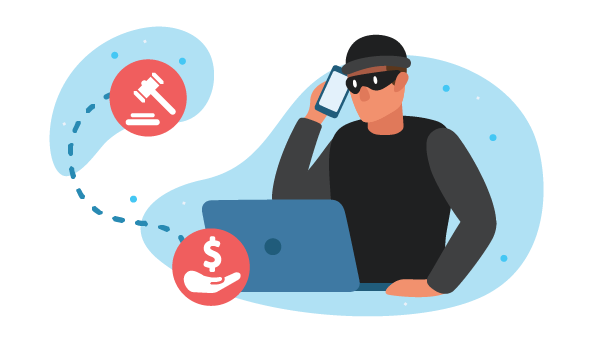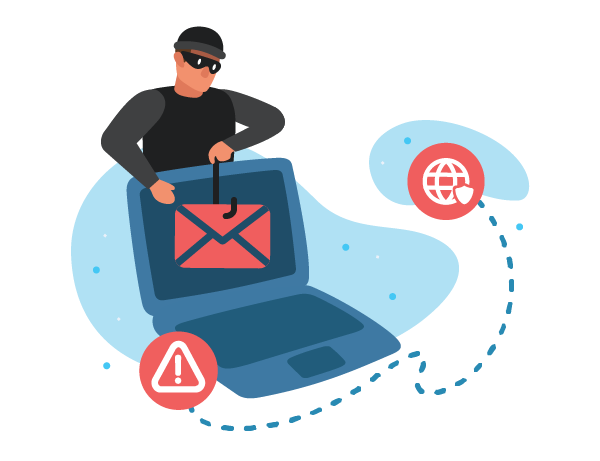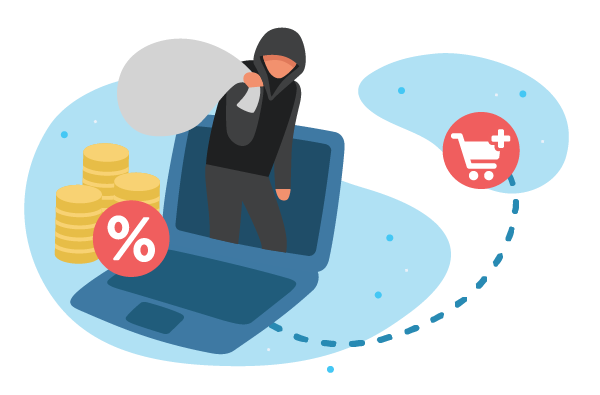
Many companies offer gift cards as a convenient way for customers to purchase apps, books, movies, and video games from app stores. But as convenient as gift cards are for consumers, they are just as attractive to scammers who present them as legitimate payment methods in sophisticated scam scenarios.
Don’t be misled by these scams. Gift cards can only be used at the company they were issued for, not as payments for other goods, services, bills, or fines. If anyone ever asks you to pay them for anything in gift cards, it’s a scam. You should never be asked to share your gift card codes with anyone.
Common gift card scam scenarios
Here is a list of some of the most common scams today:
- Australian Tax Office and Government scam
- Personal contact impersonation scam
- Blackmail and extortion
- Discounted good or services scam
Scammers are always developing new ways to steal your money, so stay alert.
Australian Taxation Office and Government
Someone may contact you claiming to be from the Australian Taxation Office (ATO), police or another official government entity. They often try to scare you into buying gift cards as payment for back taxes, parking tickets, or to resolve other legal issues.

They may have some of your personal details, and may even threaten you with arrest or suspension of a business or driver’s license if you don’t “pay up” with gift card codes.
Know that government officials will never require payment with gift cards to resolve your tax or other legal issues.
CEO/Boss/Personal contact impersonation
In this scam, someone may email or text you pretending to be someone you know. It could be your company CEO, your boss, or a personal contact, like a friend or family member.

They may say they need help with a task or favour or that they’re in an emergency situation, such as a car accident. They will ask you for money to help them out, sometimes in the form of gift card codes.
While the request may look like it’s coming from one of your contacts, it’s likely a “phishing” scam.
Phishing emails or text messages disguise themselves as legitimate messages, but are actually ploys to get you to reveal personal information—such as passwords, credit card numbers—or gift card codes.
Refer to our Avoiding Phone and Internet Scams tip sheet for more information.
If you want to confirm a gift card request is from someone you actually know, do not respond directly to the message you received and do not click on any links in the message (which may contain viruses).
Instead, contact the person you think is being impersonated using the phone number you regularly use to call or text them, or arrange to meet in person. If they say it wasn’t them, report the scam.
Blackmail and extortion
In blackmail and extortion schemes, someone threatens to expose some private, potentially embarrassing information, and demands that you pay them in gift cards to stop them. Blackmail and extortion are themselves crimes, above and beyond the act of trying to scam you out of gift card codes, so be sure to report this one to local law enforcement.

Discounted goods or services
Someone may offer a large discount on a product if you pay with a gift card instead of a credit or debit card. They may also claim you need to pay with a gift card as there are issues with your recent credit or debit card payments. Do not fall for this scam. Buy your goods elsewhere through known trusted shops or websites.

What to do if you or someone you know is a victim of a scam
If you or a family member has experienced a scam, you should report the scam to your local police department.
You can also report scams to the ACCC’s Scam Watch website.
You can also report scams to the Australian Cyber Security Centre (ACSC).
Many banks, phone companies and other service providers include information on their websites about how to detect and avoid scams.

Comments powered by CComment